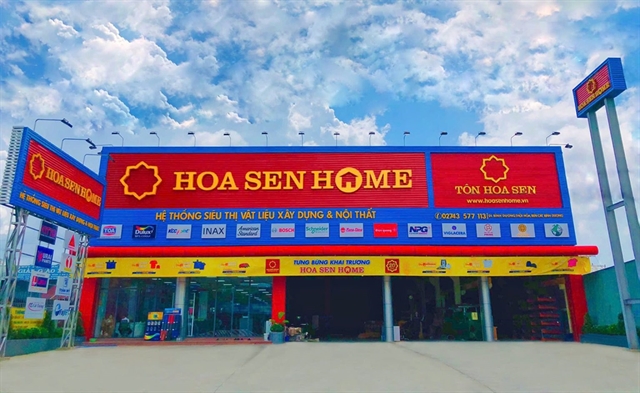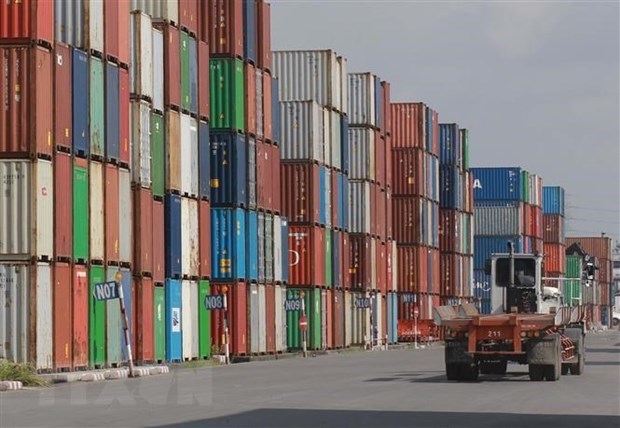 Economy
Economy

 |
| Emily Hamblin, the British consul general in HCM City. — VNA/VNS Photo |
In the three years since its signing, the United Kingdom – Vietnam Free Trade Agreement (UKVFTA) has benefited both Vietnamese and British businesses. Việt Nam News reporter Thu Ngân talks with Emily Hamblin, the British consul general in HCM City, about the outcomes of the agreement. Hamblin also speaks about how they can further take advantage of the trade deal.
What impact has the UKVFTA had on Việt Nam and the UK?
I was thrilled when the UK and Việt Nam finalised negotiations on the UKVFTA in 2020, marking a significant milestone in our nations' economic and trade relations.
The impact of this agreement extends far beyond the removal of 99 per cent of tariffs upon full implementation; it has ushered in a new era of collaboration, fostering economic growth and unlocking numerous opportunities.
Since its implementation, bilateral trade has flourished, reaching £6.9 billion (US$8.5 billion) in 2022, a remarkable 29 per cent increase from the previous year.
The UKVFTA's comprehensive tariff reduction roadmap has played a pivotal role in enhancing market access for a wide array of products. Notably, for Việt Nam, key sectors such as phones, textiles, footwear, furniture, and agricultural products have experienced a surge in market penetration.
Similarly, UK exports have benefited in areas like machinery and pharmaceuticals and in services from finance to retail. Beyond economic gains, the UKVFTA incorporates commitments to sustainable development, providing a crucial framework for co-operation on green and fair trade. This aligns with the global trend towards sustainable development, addressing environmental concerns while meeting the demands of responsible commerce.
Our commitment to global trade is further underscored by the UK's recent agreement to join the Comprehensive and Progressive Agreement for Trans-Pacific Partnership (CPTPP), of which Việt Nam is a founding member.
This strategic move to join a dynamic trade bloc, which will cover £12 trillion ($14.7 trillion) of global GDP once the UK joins, complements the existing UKVFTA, offering additional preferential tariffs and further elevating the standards for trade.
The CPTPP trade agreement encompasses crucial areas like digital trade, e-commerce, and trade in services, reflecting the needs of modern economies like the UK.
Participation in these agreements not only enhances our bilateral relationship but also empowers the UK to join with other CPTPP members to shape the international trade rules of the future, promoting a free and rules-based trading system on a global scale.
Looking ahead, I am confident that collaborative efforts between Việt Nam and the UK will continue to expand markets for new products in both countries.
This not only enables the people of Việt Nam to experience internationally renowned high-quality products from the UK but also establishes the UK as an increasingly important export destination for Vietnamese exporters.
The UKVFTA stands as a testament to the power of diplomatic collaboration, fostering prosperity and sustainable development for both nations.
How are British companies benefiting from the trade deal and how can they take better advantage?
UK businesses must continue to leverage their strengths and build their understanding of the Vietnamese market in order to fully capitalise on the opportunities presented by the trade deal.
The UK offers particular advantages as a high-quality, high-tech, reliable provider of sustainable goods and services.
It's evident that the UKVFTA opens up avenues for UK businesses to more fully capitalise on the opportunities of the growing Vietnamese consumer market.
 |
| A logistic centre in Việt Nam. The UKVFTA marks a significant milestone in the two nations’ economic and trade relations. — VNA/VNS Photo Quang Châu |
It supports trade across many sectors - from services, where Việt Nam has for example made commitments to further open the financial services sector, to goods where for instance over 71 per cent of UK pharmaceutical products immediately enjoy tariff elimination with the majority of the remainder phased out within six years.
In order to take full advantage, UK companies will need to strategically position themselves to benefit from evolving trade dynamics.
Stability, predictability and transparency in the Vietnamese business environment will also be key in encouraging more UK businesses to lean into the opportunities of this market.
One of the key areas of growing opportunity for both sides is around creating environmentally friendly goods and services. Businesses need to adapt to increasingly high standards related to environmental protection and climate change, and there are commercial benefits for early movers.
I am delighted that Việt Nam has committed to achieving Net Zero by 2050 and is accelerating its transition to renewable energy through the Just Energy Transition Partnership.
As the world moves towards achieving carbon neutrality it will shift export comparative advantage towards those sectors and markets that can deliver to greener standards.
I am proud to see both UK and Vietnamese businesses proactively adopting sustainable models to demonstrate their commitment to these values and this is a trend that needs to accelerate.
What are the most popular Vietnamese products in Britain? How can they increase their desirability?
In 2022 we saw substantial growth in key Vietnamese export products to the UK market.
Notable among these were agricultural products such as food and live animals (up 40 per cent); coffee, tea, cocoa (up 88 per cent); various kinds of footwear (up 51 per cent); clothing (up 53 per cent); and telecoms and sound equipment (up 99 per cent).
This is excellent to see - it provides consumers in the UK with increased choice and also supports prosperity here in Việt Nam.
The implementation of the UKVFTA in January 2021 led to the immediate elimination of 85.6 per cent of tariff lines for Vietnamese goods entering the UK market.
This provided an excellent opportunity for Vietnamese products, from shrimps and pomelos to phones and tech, while also enabling the UK to export products that are in high demand here in Việt Nam from our pharmaceuticals through to iconic products like Scotch whisky.
Crucially, the UK has committed to eliminating up to 99.2 per cent of tariff lines by January 1, 2027, with the remaining 0.8 per cent enjoying tariff quotas with a 0 per cent import tax within the quota.
These commitments provide many of Việt Nam's products with a distinct advantage in approaching the UK market.
To capitalise on this, Vietnamese exporters should focus on the quality and sustainability of products, aligning with the growing consciousness of environmental and social impacts of consumption in the UK market. — VNS